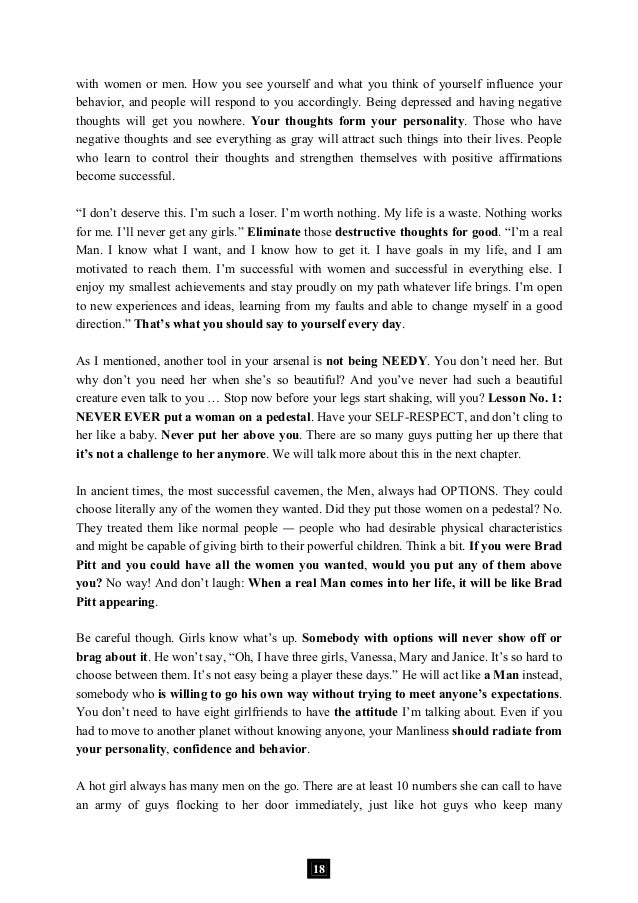Download Burger Personality Pdf Free
Posted By admin On 17.09.19Teacher attributions for elementary school students' successful and unsuccessful performances in real classrooms were assessed during three different times of the school year. Results suggest that practicing teachers' explanations of their own students' performances follow patterns consistent with earlier research on attribution processes.
Behavioral and psychological symptoms of dementia include agitation, depression, apathy, repetitive questioning, psychosis, aggression, sleep problems, wandering, and. Dan Tobin of The Boston Phoenix described Beavis as 'the sidekick and follower' who developed into 'more of a loose cannon'. Mike Judge once said in an. Bystander Response to a Cheeseburger H. Petty', Kipling D. Williams, Stephen G. “FREE McDONALD's BURGER” read the poster, 18 x 23 cm with a pocket underneath stating “Take this one. Journal of Personality and Social Psychology, 1974, 29, 279-287. E., & Larntz, F. Some models for.


| Arkin, R. , Cooper, H. , & Kolditz, T. A statistical review of the literature concerning the selfserving bias in interpersonal influence situations. Journal of Personality, 1980, 48, 435-448. Google Scholar Crossref ISI |
| Cooper, H. M. Pygmalion grows up: A model for teacher expectation communication and performance influence . Review of Education Research, 1979, 49, 389-410. Google Scholar SAGE Journals ISI |
| Cooper, H. M. , & Burger, J. M. How teachers explain students' academic performances: A categorization of free response academic attributions. American Educational Research Journal, 1980, 17, 95-109. Google Scholar SAGE Journals ISI |
| Cooper, H. M. , & Lowe, C. A. Task information and attributions for academic performance by professional teachers and roleplayers. Journal of Personality, 1977, 45, 469-483. Google Scholar Crossref ISI |
| Heider, F. The psychology of interpersonal relations. New York: Wiley, 1958. Google Scholar Crossref |
| Miller, D. T. , & Ross, M. Self-serving biases in the attribution of causality: Fact or fiction? Psychological Bulletin, 1975, 82, 213-225. Google Scholar Crossref ISI |
| Ross, L. The intuitive psychologist and his shortcomings: Distortions in the attribution process. In L. Berkowitz (Ed.), Advances in experimental social psychology (Vol. 10). New York: Academic Press, 1977. Google Scholar Crossref |
| Ross, L. , Bierbrauer, G. , & Polly, S. Attribution of educational outcomes by professional and nonprofessional instructors. Journal of Personality and Social Psychology, 1974, 29, 609-618. Google Scholar Crossref Medline ISI |
| Weiner, B. An attributional approach for educational psychology. In L. Shulman (Ed.), Review of research in education (Vol. 4). Itasca, IL: Peacock, 1976. Google Scholar |
| Zuckerman, M. Attribution of success and failure revisited, or: The motivational bias is alive and well in attribution theory . Journal of Personality, 1979, 47, 245-287. Google Scholar Crossref ISI |
Book Preface
Personality, 8th EditionI’ve always enjoyed the story about the man who claims to own Abraham Lincoln’s axe. “The head has been replaced several times,” the man admits. “And this is the third or fourth handle. But it’s the same axe that Honest Abe used.” I was reminded of this story recently when I thumbed through the first edition of this book. Gradually, over the course of eight editions, much of the book has changed. There are new topics, new learning aids, new examples, and hundreds and hundreds of new references. But, like Lincoln’s axe, the essence of the book remains intact. Briefly, here’s what’s new this time around, as well as what’s stayed the same.
WHAT’S NEW?
As in previous revisions, each chapter has been updated to reflect new research findings and new developments in the field. More than 250 references have been added to this edition. I’ve also made a few additions and deletions to reflect some of the changes I see in the field. You’ll find an expanded discussion of theory and research on the behavioral activation system (BAS) and behavioral inhibition system (BIS) in Chapter 9. Chapter 14 now includes a section on unmitigated communion as part of the discussion of individual differences in gender-role behavior. I’ve also added a personality scale for students to assess their own level of unmitigated communion. That same chapter includes a new section on the effects of playing violent video games, a topic of particular relevance for many college students. I’ve added a new research topic to Chapter 16—cognitions and aggression. I’ve presented the general aggression model and discussed the research on reactive aggression in elementary school and middle school boys.
I have also dropped some material from the previous edition. I no longer discuss self-esteem stability in depth, although I do include some of the concepts taken from that research in the section on contingencies of self-worth in Chapter 12. I have dropped research on gender schema from Chapter 14, and replaced the research on cognitive interpretations of Freudian concepts found in Chapter 16 of the previous edition. Finally, feedback from users persuaded me to drop the Appendix. The Appendix in the seventh edition summarized various places in the book where culture and gender were mentioned. Of course, those two topics are still discussed frequently throughout the book.
| Download Ebook | Read Now | File Type | Upload Date |
|---|---|---|---|
| Download here | Read Now Ads | October 27, 2015 |
Download Burger Personality Pdf Free Download
 JavaScript needs to be enabled in order to be able to download.
JavaScript needs to be enabled in order to be able to download.Do you like this book? Please share with your friends, let's read it !! :)
How to Read and Open File Type for PC ?